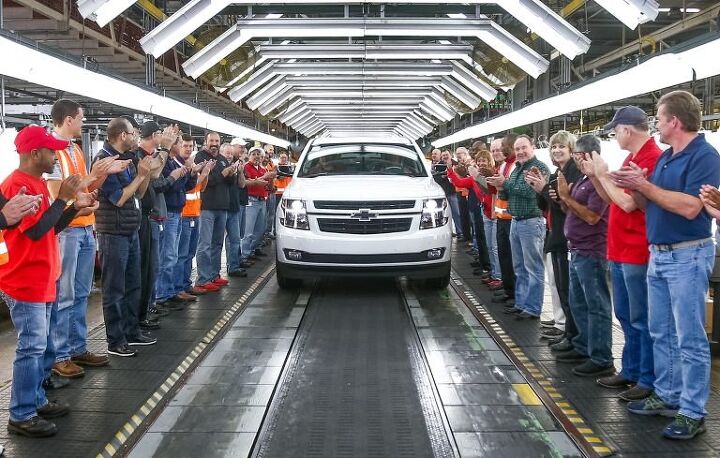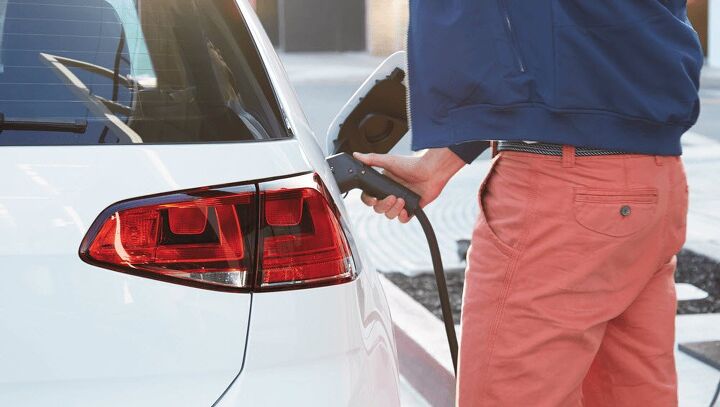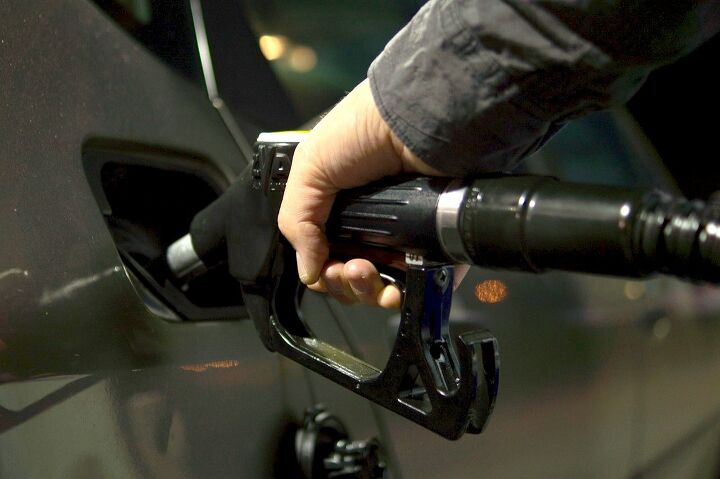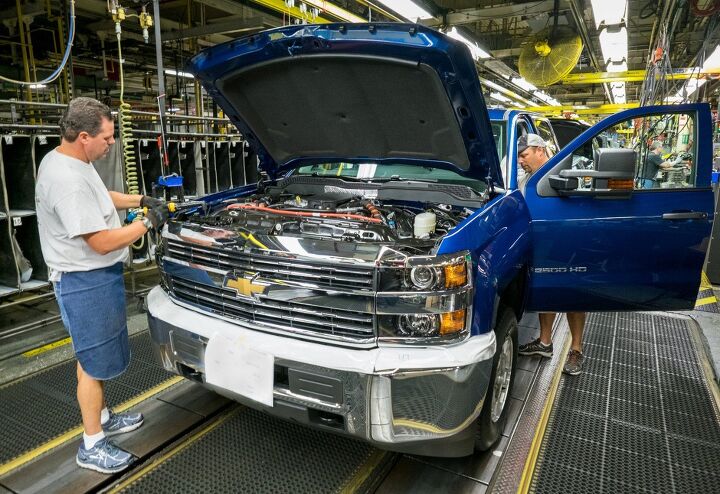#AllianceOfAutomobileManufacturers
Automotive Trade Group Hopes to Keep Colorado From Following California's ZEV Rules
It’s no secret that California plans to ignore any federal ruling that soften emissions regulations on automobiles. The state’s already suing the Environmental Protection Agency and National Highway Traffic Safety Administration over the data used to justify the Trump administration’s proposed rollback of vehicle emission standards. It has also recruited leadership in other states to join the cause and adopt its zero-emission-vehicle strategy.
Colorado Governor Jared Polis has already signed an executive order directing the state to follow California’s path — joining with Maryland, Massachusetts, New Jersey, New York, Oregon, and other participating states toward a common cause. However, the battle isn’t over yet. Industry lobbyist are hard at work changing minds, and the Alliance of Automobile Manufacturers (AAM) seems to be making progress with Colorado.
Auto Industry 'Unites' Against U.S. Import Tariffs
Of all the things that automakers hate, losing money has to hold a permanent place at the top of the list. If you aren’t making money, you can’t keep building cars — and if you aren’t building cars then you’re not much of an automaker. Following that almost irresponsibly oversimplified logic, it’s no wonder the industry has been hesitant to endorse President Trump’s suggestion that the United States may need to enact new import tariffs.
While seemingly eager eager to provide manufacturers with the tools to get things done, the current administration clearly wants it done in America — and isn’t above punishing those who refuse to reciprocate. As a result, lobbyists have begun putting in some overtime.
This is a Mess: EPA Begins Quest to End California's Fuel Waiver
The Trump administration has enacted phase two of its plan to revise Obama-era rules designed to cut pollution from vehicle emissions. In a proposal sent to the White House Office of Management and Budget on Thursday, the Environmental Protection Agency announced its intention to rescind the California waiver that separates it from the federal standards the state uses to regulate greenhouse gas emissions from automobiles.
Since allowing California to set its own emission standards would effective split the country’s auto market, the EPA has been clear that its ideal solution would be to cut a deal with the Golden State. Agency head Scott Pruitt previously said California “shouldn’t and can’t dictate [fueling regulations] to the rest of the country,” but acted in a manner that suggested a compromised could be reached.
This was followed by a lawsuit filed by 17 U.S. states, along with the California governor’s office, California attorney general, and the California Air Resources Board (CARB), alleging that the EPA had “acted arbitrarily and capriciously” in its decision to roll back the previous administration’s decision. While the odds are good that the Trump administration wasn’t ever interested in bending to California’s more stringent pollution policies, this was likely the point of no return — squashing any hope for meaningful negotiations.
Trade War Watch: U.S. Public to Have a Say on Auto Import Threat
There was a mighty blowback against the Trump administration’s suggestion to elevate tariffs to as much as 25 percent on all foreign-built passenger vehicles.
Already reeling from fresh import fees on aluminum and steel, Europe expressed its collective distaste on new taxes while Japan vowed to plead a strong case for itself. Meanwhile, prominent politicians and two of the largest automotive trade groups in the country came forward to condemn the plan, stating it was “confident that vehicle imports do not pose a national security risk” to the United States.
While the administration has already launched its investigation to determine whether vehicle and auto part importers threaten the industry’s health and ability to develop advanced technologies, the government noted that a second opinion wouldn’t hurt. Announced on Tuesday in the Federal Register, the the Commerce Department will allot two days in July for public comments on the matter.
Trade War Watch: Automakers Respond to U.S. Import Investigation, Japan Keeps the Faith
President Trump announced a security investigation into auto imports last week, tasking Commerce Secretary Wilbur Ross with the job. His goal will be to determine what effects imported vehicles have on the national security of the United States under Section 232 of the Trade Expansion Act of 1962 — which sounds like a monumental and rather complex task.
Basically, Ross will examine whether or not the U.S. can get away with escalating automotive tariffs. That’s a touchy subject, considering how contentious global trade has become in recent months. Worse yet, the 80-year-old commerce secretary will have to continue promoting American businesses and industries outside its borders while deciding on an issue few trade partners will be happy with.
Automakers aren’t thrilled either. After Trump announced the investigation, the Association of Global Automakers and Alliance of Automobile Manufacturers both said they didn’t believe vehicle imports posed a national security risk. “To our knowledge, no one is asking for this protection. If these tariffs are imposed, consumers are going to take a big hit,” said John Bozella, President of Global Automakers, in a statement. “This course of action will undermine the health and competitiveness of the U.S. auto industry.”
Automakers to White House: Make a Deal With California on Fuel Economy
Despite pressuring Donald Trump to lower corporate fuel economy mandates since practically day one of his presidency, automakers are now urging caution. The U.S. Transportation Department has drafted a proposal that would freeze vehicle requirements at 2020 levels through 2026, the Environmental Protection Agency’s lead administrator made a public case for rolling back mileage targets, and the White House seems ready to help car companies lower the bar.
Automakers seem to have won, so why the change of heart?
Automakers Formally Take Aim at California's Zero-emission Vehicle Mandate
Compared to the rest of the United States, California is on the bleeding edge of government-appointed environmentalism. When the Trump administration suggested reexamining Obama-era fuel economy and emissions standards, The Golden State was the first to complain, saying it would not be adjusting its goals just because the rest of the country may. It also has pretty serious mandate on zero-emission vehicles — one that forces 15 percent of all new vehicles sold in the state to use zero-emission powertrains by 2025.
While California isn’t alone — nine other states have followed its lead since Trump took office — it is the keystone star on America’s flag pushing to maintain expand fuel regulations. Automakers have noticed and, despite previously having agreed with President Obama’s emission standards several years back, they’re launching a counter-offensive.
Arguing before a U.S. House panel, the Association of Global Automakers complained that California’s ZEV mandate threatens a single national standard for fuel economy.
Automakers Unify to Urge Trump to Keep NAFTA
Domestic automakers and suppliers have already expressed concerns that leaving the North American Free Trade Agreement could be detrimental to the industry. Numerous automotive trade groups have claimed that losing NAFTA would result in less efficient and more costly ways of doing business.
Hoping to steer Donald Trump away from the idea of abandoning the three-country accord, manufacturers, parts suppliers, and dealers have come together to form the “Driving American Jobs” coalition. The group’s primary goal is to prove that NAFTA has been beneficial to the participating countries, especially the United States. It also makes the claim that withdrawing from NAFTA would re-establish trade barriers, hurt the U.S. economy and cost jobs.
“We need you to tell your elected officials that you don’t change the game in the middle of a comeback. We’re winning with NAFTA,” urges the group’s website.
Congress Will Be Bombarded With Autonomous Car Propaganda This Week
This week, the Coalition for Future Mobility — a recently formed automotive trade group representing major automakers and self-driving advocates — will roll out a bevy of targeted television spots, print ads, and social media posts specifically designed to encourage Congress to adopt legislation assisting the budding industry’s growth.
Earlier in the month, the House of Representatives passed a bill that would expedite the deployment of self-driving cars and prohibit states from blocking autonomous vehicle testing. This was immediately followed by Transportation Secretary Elaine Chao publicly outlining the NHTSA’s updated automotive safety guidance — which was less about ensuring the safe development of self-driving cars and more about destroying regulatory red tape.
The Senate is the final piece of the puzzle. Automakers want to make sure it’s seeing things their way before casting their vote on whether or not the industry gets the governmental green light.
Trump Administration Re-examining Penalties for Fuel Economy Flubs
Automakers’ ability to adhere to the regulatory standards set by the U.S. government are beginning to slip. Manufacturers predicted industry-wide economy inadequacies for 2016 model year vehicles, anticipating things would only worsen for 2017. The Trump administration has framed itself as a friend to automotive companies, with the president himself claiming he would remove regulatory hurdles while in office. Corporate economy guidelines established under President Obama are already under review, but now so are the penalties companies would have to pay for not meeting them.
In a regulatory filing on Friday, the National Highway Traffic Safety Administration said it would be seeking public comment on how to revise plans, slated to go into effect from the 2019 model year, which would more than double the penalties on auto manufacturers that fall short of meeting the government-set economy targets.
Republican Proposal Would Block States From Setting Self-driving Rules
A coterie of Republican officials believe individual states should be forbidden from governing themselves in regard to autonomous vehicles. Only in its commencement, a new U.S. House proposal claims states would not be within their rights to mandate the design or testing of self-driving cars.
If made law, the proposal would eliminate the need for automakers to acquire any pre-market approval from federal regulators. While that sounds like a free-for-all ripe for accountability issues, several states already have laissez-faire or highly supportive attitudes when it comes to autonomous vehicles, though others could become serious headaches for automakers hoping to swiftly get the technology on the road.
The 45-page legislative draft includes 14 bills and would designate the U.S. National Highway Traffic Safety Administration as the primary agency for regulating self-driving cars. It’s aggressively pro-business and, despite being penned by Republicans, has managed to achieve some bipartisan support.
As California Fumes, Automakers Head to Washington to Talk Emissions
A slew of automakers are scheduled for a Thursday meeting with the heads of the Environmental Protection Agency and U.S. Department of Transportation to go over existing Obama-era efficiency rules. Transportation Secretary Elaine Chao and EPA Administrator Scott Pruitt will both be on hand to discuss — and likely reassure — manufacturers on the future of the guidelines.
In March, President Donald Trump ordered an extensive review of U.S. light vehicle fuel-efficiency standards for the 2022-2025 time frame, despite the Obama administration locking them in well ahead of the midterm review’s April 2018 deadline. The decision was rushed to maintain the administration’s climate change policy and avoid any tampering from incoming Trump appointees. While there remains much to be done before the standing emission limits can be rolled back, wheels are now in motion.
White House Plan Virtually Eliminates Funding for EPA Emissions Testing
The Trump administration’s current plan for the Environmental Protection Agency budget removes nearly all funding for vehicle emissions testing. Proposed cuts to the EPA’s budget would eliminate 99 percent of the agency’s $48 million in funding for vehicle testing, shouldering automakers with increased fees to split the difference.
However, former head of the EPA’s Office of Transportation and Air Quality Margo Oge is claiming that such a large cut would force the agency into “pretty much shutting down the testing lab” regardless of corporate contributions.
Automakers Didn't Even Waste a Full Business Day Asking New EPA Head for Relief
Scott Pruitt, Oklahoma’s former attorney general, was sworn in to his new role as Environmental Protection Agency administrator late Friday following a 52-46 Senate vote earlier in the day.
While it isn’t known what Pruitt did over the weekend, it’s safe to say that members of the Alliance of Automobile Manufacturers spent at least part of that downtime drafting a letter, likely mirroring one they’ve already sent to President Donald Trump.
The group, representing 12 automakers that build 77 percent of the light-duty vehicles sold in the U.S., wants action on lowering the industry’s fuel economy and emissions targets. Urgent action, ideally. Now that there’s been a change at the top, the group feels that it might finally get its wish.
US Data Privacy Guidelines Not Compatible With Euro Privacy Laws
Just as with emissions and headlamps, standards recently adopted in the United States regarding consumer data and privacy won’t be compatible elsewhere, specifically in Europe.






























Recent Comments